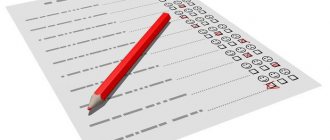What is proactivity
In simple words, proactivity is a quality that helps you take responsibility for yourself and your life. Viktor Frankl first spoke about it in his book “Man’s Search for Meaning.” According to him, proactive people never blame events and circumstances for what is happening. In psychology, this quality is divided into two components:
- Activity. Confident movement towards goals.
- Responsibility. Awareness of the consequences that actions can lead to. It is difficult to argue with the statement that everything that happens around us is the result of our decisions and behavior. And until we accept this fact, nothing will change.
There is a quality opposite to proactivity - reactivity. By definition, this is the dependence of a person’s actions on his reaction to external factors. The latter includes the weather, the home or work atmosphere, the mood of your spouse, and much more. Reactive people are easily upset.
As an example, imagine a situation at work. Let’s say you calmly carried out the duties assigned to you and communicated with clients. Suddenly one of them undeservedly yelled at you. Will this make your mood worse? Probably yes. This is how reactivity manifests itself.
So, a proactive person is one who can independently choose what his reaction to what is happening around him will be. He confidently moves towards achieving his goals, guided exclusively by his principles.
A comparative table will help you better understand what proactivity and reactivity are. It describes the characteristics inherent in these qualities:
| Proactivity | Reactivity |
| Activity, initiative, purposefulness | Passivity, inaction |
| Responsibility for actions taken | Dependence on mood and factors that cannot be changed in any way |
| Understanding freedom of choice | Transferring responsibility to others |
| Focus on your principles and values | Emotion addiction |
| Changing circumstances to suit your needs | Depends on circumstances |
Positive life position [p.58]
Feeling good and achieving your goals is the result of self-management. Remember that there is always a choice to be confident or not. And that's your right. Remember that only a positive life position will lead to success. [p.63]
What Character Really Means Character is the ability to live by positive values. A person with a flawed character places high value on short-term gains or recognizes no value at all. Your attitude towards this, your view of these things is the real measure of your character and personality, which determines your position in life. [p.8]
Analysis of actions - according to the concept of Eric Berne, life position directly affects relationships and interaction with others, Thomas Harris continued the development of this concept, proposing a positive model of the perception of others. Everything is fine with me - everything is fine with them. [p.72]
Flexibility is vital for those who are pressed for time. Try to keep your mind open, not to stew in your own juice, be it at work or at home. Making informed and intelligent decisions is very important. Maintaining an optimistic and positive attitude is also helpful. Laughter [p.91]
Adhere to a positive life position, and it will be easier for you to manage yourself. There are several methods to help achieve this, each of which is directly related to a person's attitude towards life. [p.58]
Based on the above considerations and computer calculations, paired correlation coefficients of all regional indicators were determined in relation to the republican ones, first to the volume of gross output of all agriculture, then to exports and imports, and then to investments in fixed capital. Considering the results of the obtained correlations of indicators, it can be stated that,,, all macro indicators have the same positive effect, i.e. stimulating influence on agricultural indicators of the West Kazakhstan region. And also on the indicators of West Kazakhstan Regional Electric Energy Company OJSC in terms of income from the sale of services and growth in the cost of products sold. If in terms of the growth in the development of investments in fixed capital, the production of basic livestock products, milk, camel livestock and income from the sale of services on the part of West Kazakhstan REC OJSC, such trends are the basis for future prospects, then the increase in production costs for West Kazakhstan REC OJSC should be considered a growing problem for the future of this enterprise, and this is connected not only with the increase in tariffs for services. The main problem in the future with such a relationship arises later, when competitors to this monopolist appear, which will lead to a change of owner, forced or voluntary restructuring, a drop in living standards in the region, a decrease in employment at the enterprise and, as a consequence, an increase in unemployment, socio-economic tension in the region . [p.192]
In the early 70s. these theories were subjected to comprehensive criticism from Marxist-Leninist positions. A process of economic consolidation was carried out. life of the country and in economics. science. The efforts of economists were aimed at a positive, in-depth development of the fundamentals. political problems economy of socialism and, above all, those who were most attacked by right-wing revisionists, as well as problems of economic growth and economics. efficiency of socialist reproduction, socialist. organization and management of production, long-term and medium-term planning. Much attention was also paid to the problems of socialism. economical integration, international specialization and cooperation within the framework of CMEA, economic. problems of nausho-technical revolution and raising the living standards of the population. [p.401]
Development is a process of change that results in a new quality of the organization. As a rule, the development process is associated with a positive result achieved over time, implying greater efficiency, scale and variety of activities. If a company is constantly dissatisfied with itself (rather than with its customers), it makes heroic efforts to attract customers (for example, by creating a customer information system or developing its staff, constantly analyzing which services are in greatest demand, focusing departments on personalized service), expanding the geography of its activities, or By protecting a niche, breaking traditional patterns of delivering a service to the user, and reducing time, it has a chance to earn higher margins than its slower competitor. But at all stages of the life cycle of any organization, difficulties arise, the organization loses ground, and various kinds of crises arise. Can we consider that these crises are a consequence of development? The most difficult periods for an organization can become periods of its development if elements of a new quality are discovered, and management is able to spread them and lead to relatively stable positive socio-economic changes. [p.112]
Proactivity and reactivity according to Stephen Covey
According to Stephen Covey, every person is initially proactive, regardless of circumstances. The situation changes when he voluntarily agrees to such changes. A reactive person, when in a difficult situation, begins to blame external factors. The proactive one at this time is looking for the most favorable way out.
It is worth noting that there are two types of external factors:
- The ones you can't change in any way. This is the exchange rate, the situation in the country, prices for utilities. According to Stephen Covey, this is a circle of concern.
- Which can be influenced. This is career advancement, health, education. Such factors are called the circle of influence.
To determine whether you are a proactive or reactive person, ask yourself: Which direction am I going? Are you busy doing things you can influence? Or are you moving in the opposite direction?
In Covey's diagram, the circle of influence is located within the circle of concern. A proactive person directs efforts to implement tasks within the circle of influence. Let's give an example of proactivity at work. The head of the company was faced with an increase in prices for communication services. A reactive person is unlikely to look for a way out by analyzing the current situation. The proactive one will implement new communication standards, which will ultimately reduce costs and improve interaction with customers.
What is employee proactivity? About the same. A person endowed with this quality will never be afraid of difficulties. In any case, he will look for a way out of the current situation, and not feel sorry for himself and scold the circumstances.
Introduction to the article “life position”
On my website I post my articles, which I often discuss on other Internet resources. Usually I hear all sorts of reproaches and accusations addressed to me. Of course, I became interested, I decided not to get involved in any controversy, maybe they would stop reproaching and accusing me... They didn’t stop, they even go on social networks with accusations.
What are the reasons, I think, and I decided to investigate this question and wrote an article so as not to answer on sites, but to send it here, where there are already ready-made answers. In principle, research is my method of development, and therefore it will be interesting how I approach the analysis of this or that issue, what is my position in life.
How to develop proactivity
Becoming a proactive person in control of your life is not easy. A number of exercises will help you with this. The key to success is regular training.
Live in a circle of influence, not in a circle of worries
Remember what we're talking about? Circle of influence - factors you can change. The circle of concerns is what is beyond your control. Live in the first one. Control not yourself, but the reality around you.
Life position – Knowledge or “teacher”
And so, I publish an article, every person has the right to read it or not to read it, every person, even after reading it, can reject everything for himself and simply forget what I am stating or even refute it, but give reasonable arguments.
They also give arguments, but not their own, but from some sources. But the sources are very dubious, not because they are false, but because we understand them completely differently than those contemporaries did when they were written. Take the same Bible. I understand it this way, but my neighbor understands it differently. Arguments must be understandable and presented in modern symbols, taking into account the mentality of modern man. Otherwise, the individual’s life position is lost and the person takes everything on faith.
Sources of knowledge come to us not so that we canonize them, but so that we develop them further and send them to our descendants, so that there is no gap in the continuity of mentality, so that knowledge always sounds modern, and only the position of a modern person is capable express vital laws in a modern way.
I keep my notes, first going through and checking everything from my own experience, checking with the achievements of science. That is why I am confident in what I am stating, and no theory of the smartest scientists can convince me otherwise. Orthodox science is not precise, it should be accepted, it is not presented for modern man. For example, an apple fell on your head and the law of universal gravitation was discovered. No, we calculated the formula by which an apple falls - with what speed (acceleration) to the ground, what does the law of universal gravitation have to do with it?
But the main thing is that the accusation is that I am imposing my version, my position in life, and teaching incorrectly. I answer. I am not a teacher, much less a spiritual teacher, and I don’t teach anyone, I don’t need it, that’s why I don’t adapt to my students, but present my knowledge.
And even what I give out on the Internet and in my books is not a teaching factor, it is the grounding of thoughts in the manifested plane of life. And I dare to assure you that nature itself will find how to use the published material, and again only if the material contains a special life position of the researcher. It’s like you’re checking in with the Supreme.
Books for introducing proactivity
Specialized literature will help you find out what proactivity is, take tests, and get useful tips on developing this quality:
- Stephen Covey's book, The Seven Habits of Highly Effective People.
- John Miller, Proactive Thinking, Five Principles of Proactive Thinking.
- Dan Waldschmidt "Be the best version of yourself."
- Viktor Frankl, Man's Search for Meaning.
It is not enough to read these books. To learn not to react to external circumstances and control your life, apply the knowledge you have acquired.
Instead of output
The essence of a proactive and reactive approach to life is clear.
Some act.
The second ones groan.
There is no need to comment on who achieves the goal.
All that remains is to decide which path is yours. And give examples of your own proactive and reactive behavior, if you manage to catch them in current affairs. Simple analysis, but will it work? Write in the comments.
Interesting read:
Autumn blues: how to deal with it - tips
Human resource state: techniques and exercises - how to enter the resource and preserve it
How to calm your nerves: relieve tension and stress
Proactive and reactive people: achieving results
Reactive and proactive behavior pattern determines everything.
Family communication.
Behavior at work.
Prerequisites for career growth.
Tendency to plan.
Any area of life depends on the chosen behavior pattern.
All successful people “go and do it.” They are results-oriented and therefore proactive.
They calculate moves ahead, assess risks and always have an alternative plan of action. They need this so that no external factors affect their movement.
Proactivity is, first of all, responsibility towards oneself and the decisions made. And only then activity in terms of implementing plans.










